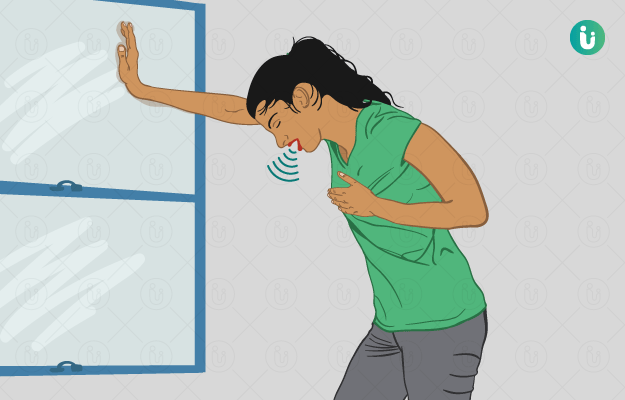What is wheezing?
Wheezing is a high-pitched whistling sound that originates from the lungs while breathing out. It is a common problem in children below five years of age with acute respiratory tract infections or other non-infectious causes. It is a sign of asthma.
What are its main associated signs and symptoms?
Wheezing itself is a symptom. It can be seen with the following accompanying clinical signs and symptoms:
- Bronchospasm- constricted airways in the lungs
- Difficulty in breathing
- Whistling sound while breathing
- Chest tightness
- Coughing during night
- Rapid heart rate
- Rapid breathing
What are the main causes?
Wheezing occurs due to:
- Bronchiolitis- inflammation of small airways in the lungs called bronchioles
- Non-infectious causes include structural or functional respiratory tract abnormalities
- Viral or bacterial respiratory tract infections
- Asthma
- Allergies
- Gastro-esophageal reflux disease (GERD)
- Foreign body aspiration
- Immunodeficiency disease
- Tumour or malignancies (cancers)
- Seasonal changes
How is it diagnosed and treated?
The diagnosis of wheezing includes:
- Physical examination
- Bronchoscopy
- Airflow obstruction tests
- Pulse oximetry readings
- Chest X-ray
- High resolution computed tomography (CT scan)
- Magnetic resonance imaging (MRI)
- Sweat test
- Bacteriological sputum studies
- Viral and mycoplasma antibody levels
- Immune function testing
Treatment of wheezing depends on the underlying causative factors. It is appropriate to administer beta 2 agonists initially in the form of aerosols. In infants with acute bronchiolitis who have respiratory distress syndrome, supportive oxygen therapy is initiated. Sedatives can exacerbate the respiratory distress syndrome and should be avoided. The therapeutic option for treating a recurrent wheeze is different from the one occurring for the first time. The first-line agents include parenteral or oral corticosteroids in case of recurrent wheeze. Antiviral treatment is often initiated if a respiratory syncytial virus is the suspected cause of infection. Vitamin D is proven to be linked with wheezing. Its deficiency can result in exacerbation of wheezing and supplementation may prove beneficial.

 Doctors for Wheezing
Doctors for Wheezing  OTC Medicines for Wheezing
OTC Medicines for Wheezing



















